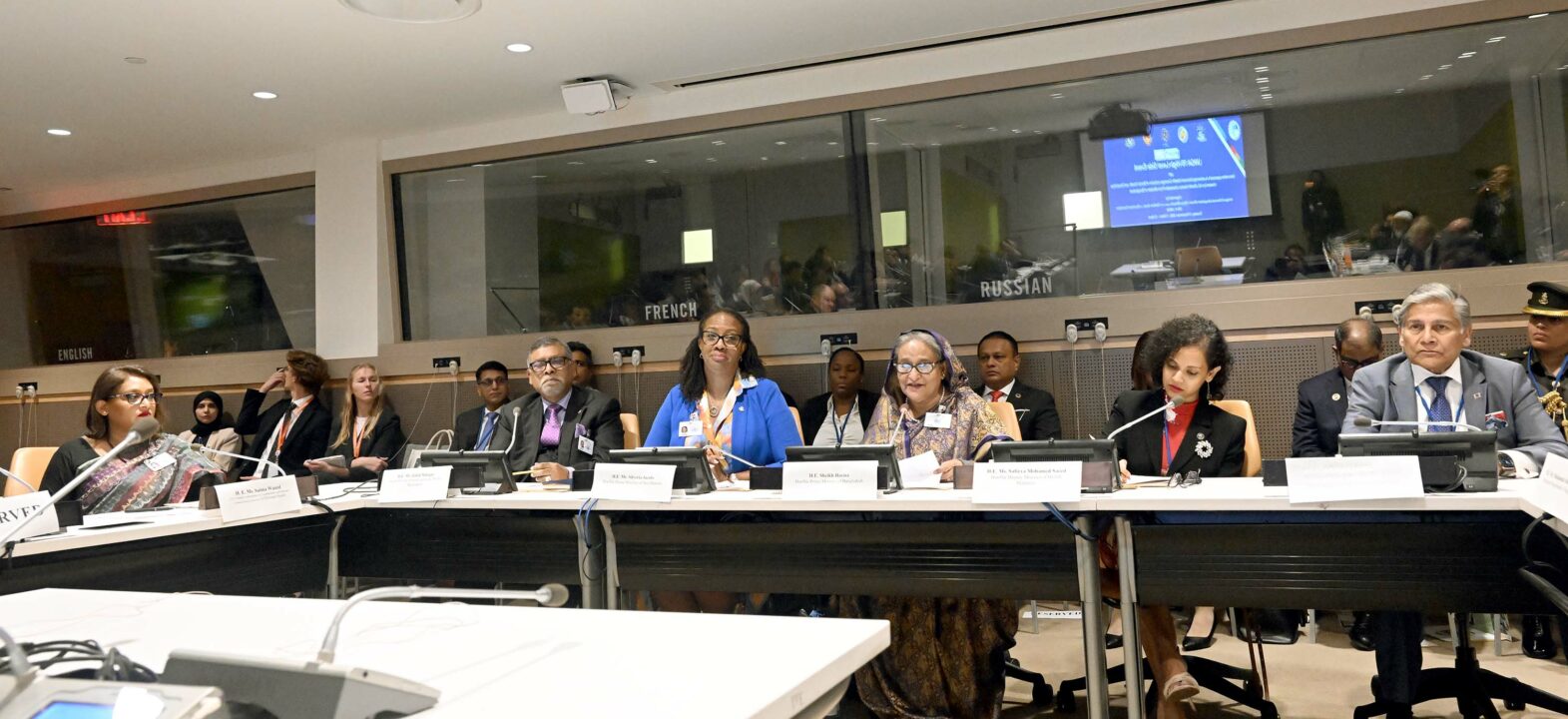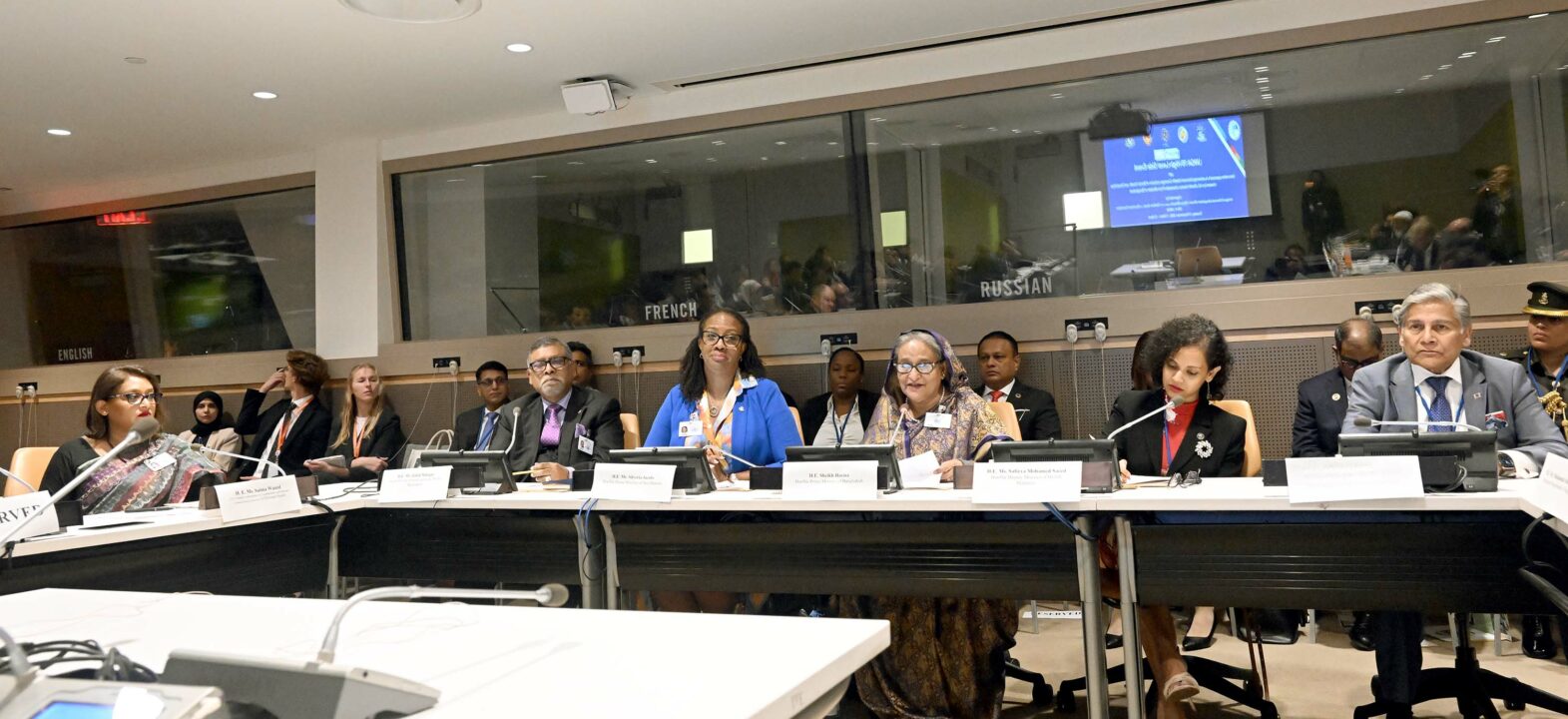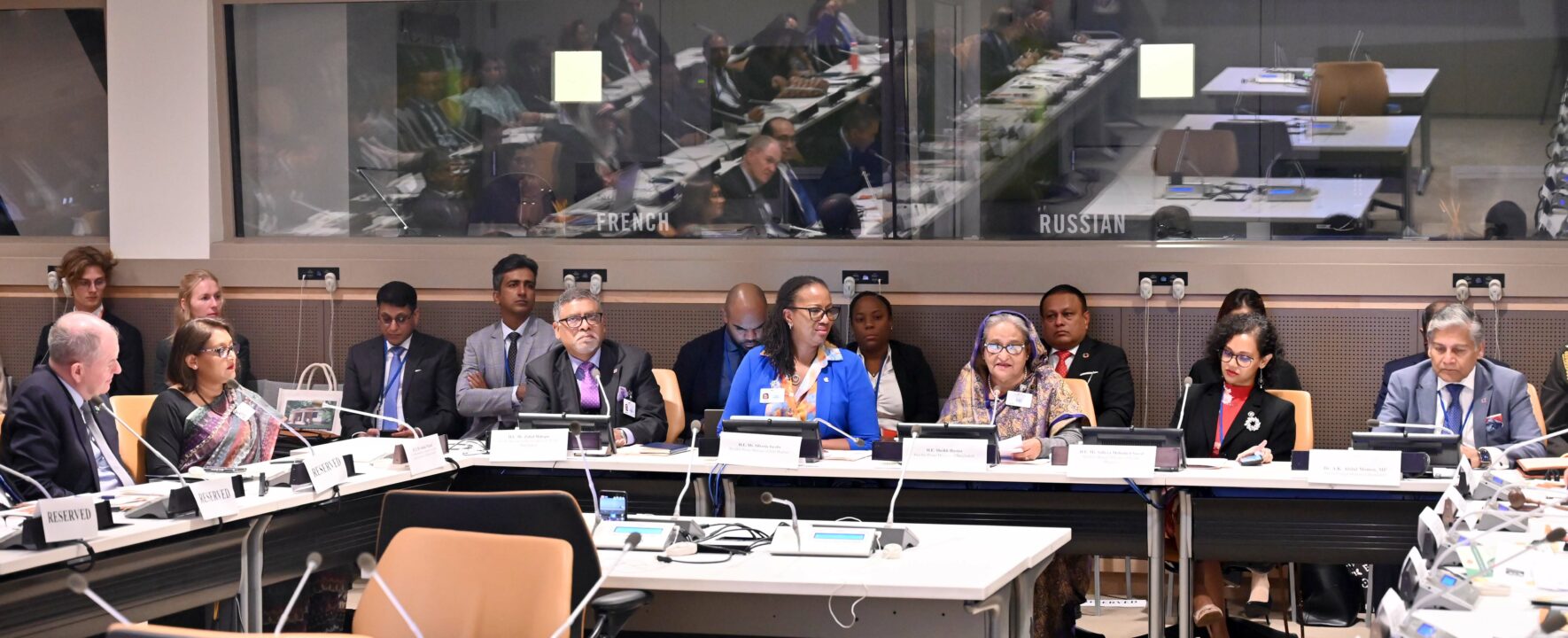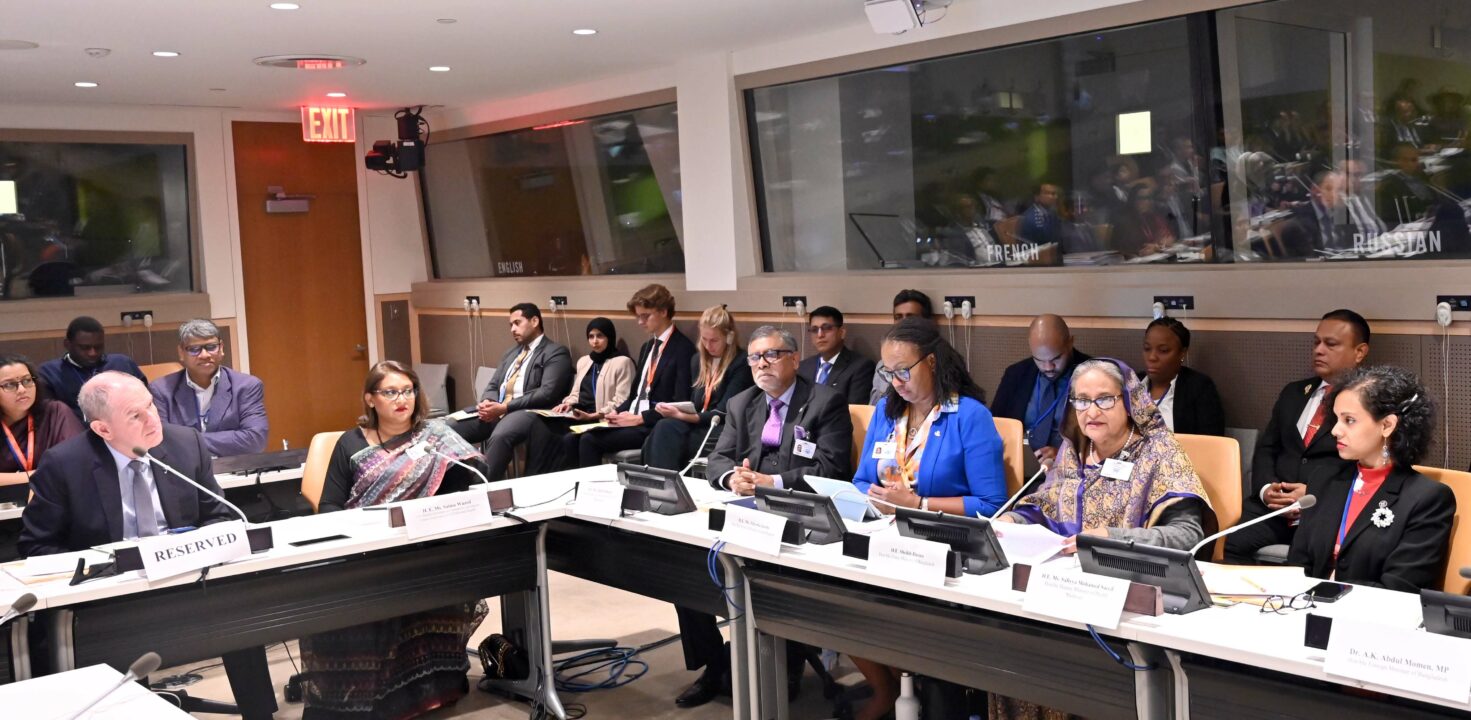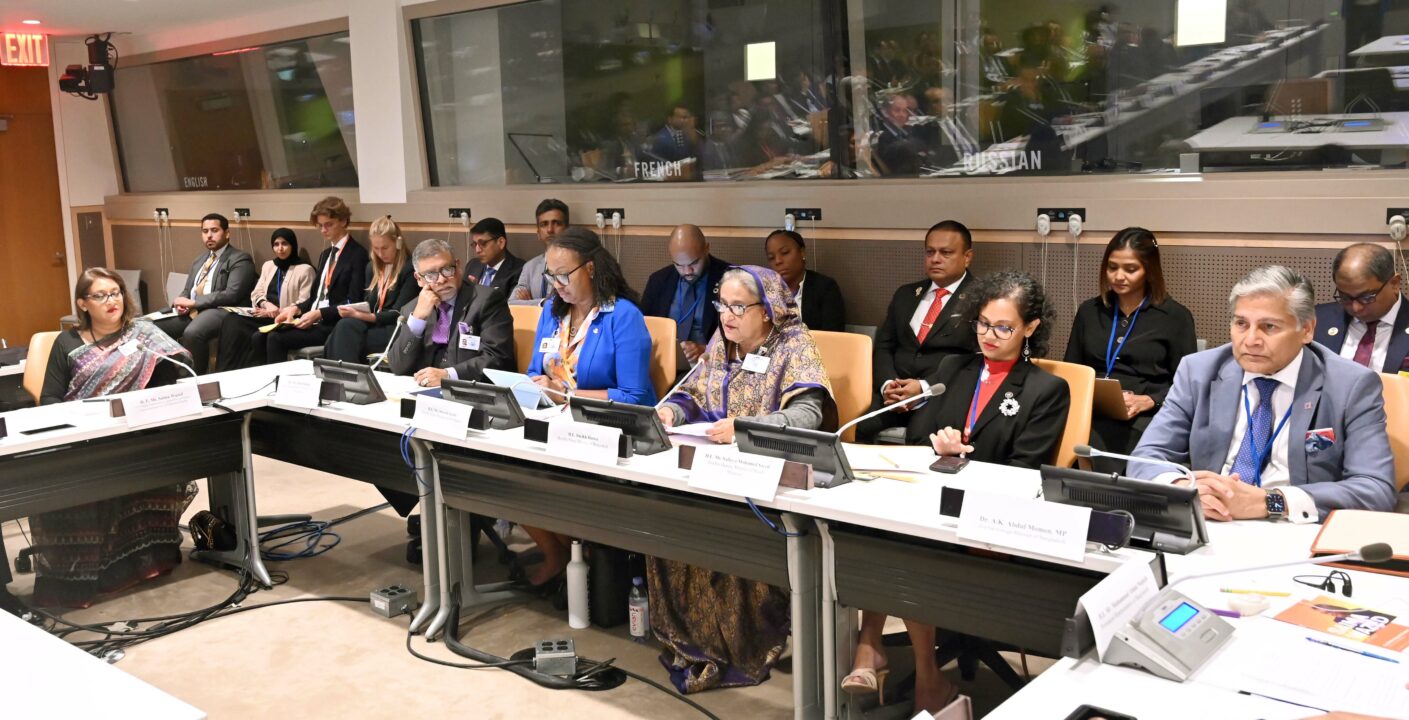Bismillahir Rahmanir Rahim
Excellencies,
Distinguished participants,
Ladies and gentlemen,
Assalamu’alaikum and a very good morning.
I thank you all for joining us for this high-level side-event. The community clinic is an idea that has stood the test of time in Bangladesh. It has now become an integral part of our primary health care system. The UN General Assembly has recognised the model as a best practice for the rest of the developing world. I feel humbled that the UN membership has recognised it as the “Sheikh Hasina Initiative”.
Distinguished guests,
In 1996, when I was first elected to office, community clinics were one of the innovative ideas we launched to promote ‘Health for All’. I was inspired by the vision of my father, our Father of the Nation Bangabandhu Sheikh Mujibur Rahman to reach health care to our people’s doorsteps. Immediately after our independence in 1971, he wanted to set up rural medical centres to provide a “minimum measure of medical relief” for the entire population. The community clinics are a realization of his dream and commitment.
There are now nearly 14,500 community clinics operating around the country. They are designed to act as a one-stop centre for health, family planning and nutrition related services. The community clinics are playing a critical role in reducing infant, child and maternal mortality. Around 3,000 community clinics offer facilities for skilled birth attendance. On average, there are 9.5 to 10 million visits to the community clinics every month. Among the service seekers, almost 80% are women and children.
The community clinics have become the local hub for universal immunization. They played a crucial role in securing COVID-19 vaccination coverage. There is also scope for screening non-communicable diseases as well as mental health and neurological disorders. We plan to use the community health care providers to combat social stigma with mental health and extend psychosocial support, where possible. It remains critical to update the training and competence of the community health workforce.
At the community clinics, our government is providing 27 essential medicines and three family planning materials free-of-cost. We have decided to replace antibiotics with anti-diabetic and anti-hypertensive agents. The community clinics act as a referral point for emergency and complicated cases to higher medical facilities. The service providers are equipped with internet and digital devices to record health data. They also engage in communication on social and behaviour change for health and disability related issues.
Distinguished guests,
The community clinics are expected to cover 6,000 people each. They are based on a unique model of public-private partnership, with the local people providing the land and the government bearing the operational costs. They are managed by local representatives drawn from different segments of the society, with mandatory participation of women. In 2001, with the BNP-Jamaat government coming to office, the community clinics were abandoned and thrown to neglect for nearly seven years. We realized at that point that the revival and sustainability of community clinics would only depend on local people acting as their owners, stewards and custodians. This model perhaps explains why 90% of service seekers express their satisfaction with the community clinics.
Distinguished guests,
In 2018, our Parliament passed the Community Clinic Health Support Trust Act to further streamline operations and funding modalities. Going forward, I envision the following five priorities for the community clinics:
First: To make community clinics serve as a gatekeeper at the grassroots to prevent huge out-of-pocket payments for health services;
Second: To enable community clinics to provide enhanced digital health and diagnostic services, especially for NCDs;
Third: To further develop the capacity of community clinics to address growing climate-induced health crises, like dengue outbreaks;
Fourth: To improve screening and treatment facilities for mental health and neurological disorders so as to provide accessible services to those affected and their families; and,
Fifth: To use community clinics as the primary building block for a robust data-driven health and nutrition programme.
Excellencies,
Distinguished guests,
We are convinced that community-based primary health care is key to achieving Universal Health Coverage. As an emerging voice of the Global South, Bangladesh would champion this issue as a possible avenue for meaningful international partnership. We call upon our development partners, including multilateral financing institutions, to extend their support for the cause of community-centric health services in the developing world. On our part, Bangladesh stands ready to share our insights and expertise with those interested. Health is at the root of all happiness. We wish to spread happiness all around through the community clinics.
I am profoundly grateful to the Hon’ble Ministers and experts who echoed our sentiments and pledged their support just now. We hope that this side-event will remain yet another proof of our shared commitment to sound health and well-being of all our peoples and communities. We feel energized by your presence as we take an oath this year to accelerate our collective work on sustainable development and universal health.
I thank you.
Joi Bangla, Joi Bangabandhu.

